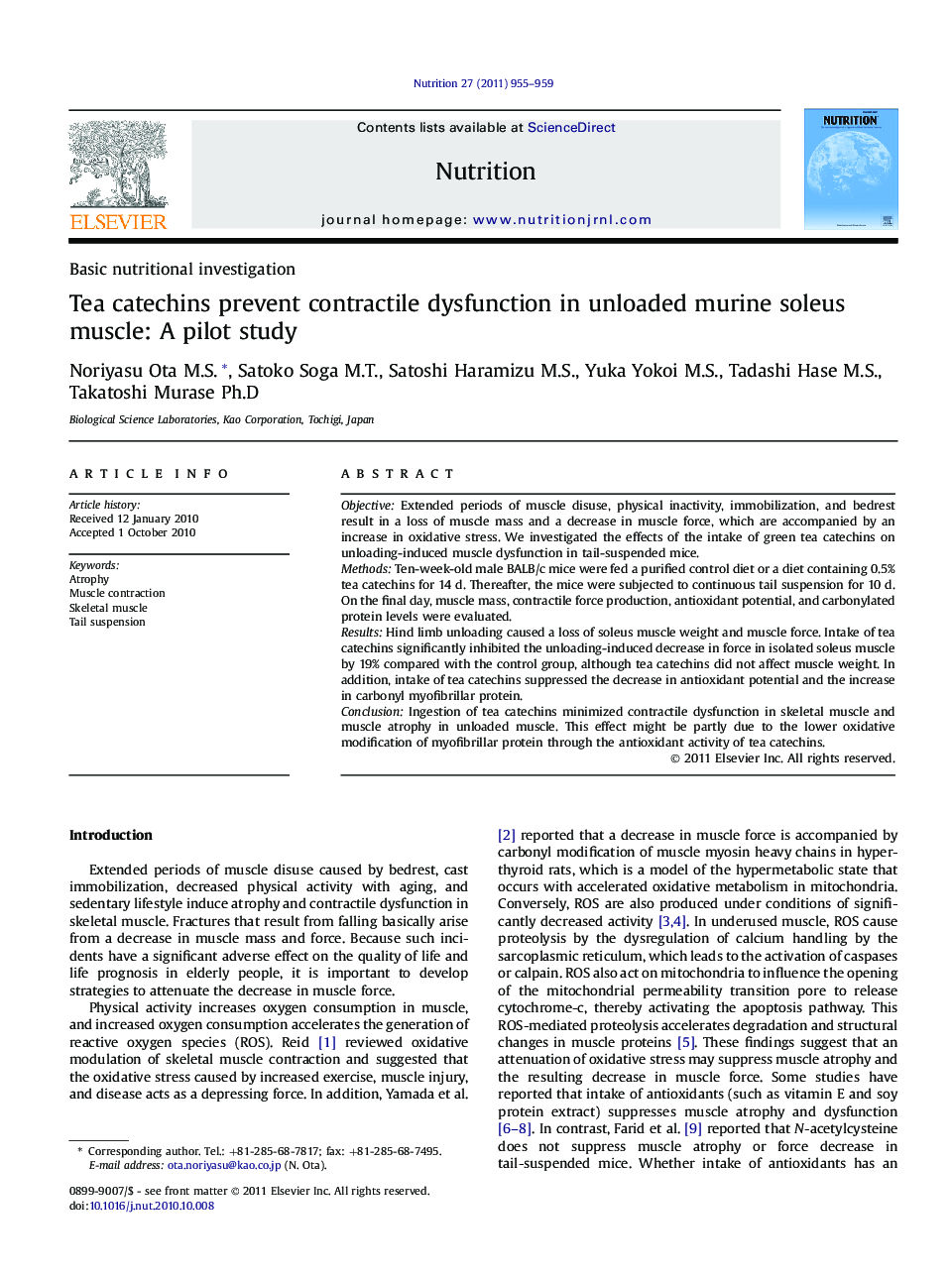| Article ID | Journal | Published Year | Pages | File Type |
|---|---|---|---|---|
| 3276661 | Nutrition | 2011 | 5 Pages |
ObjectiveExtended periods of muscle disuse, physical inactivity, immobilization, and bedrest result in a loss of muscle mass and a decrease in muscle force, which are accompanied by an increase in oxidative stress. We investigated the effects of the intake of green tea catechins on unloading-induced muscle dysfunction in tail-suspended mice.MethodsTen-week-old male BALB/c mice were fed a purified control diet or a diet containing 0.5% tea catechins for 14 d. Thereafter, the mice were subjected to continuous tail suspension for 10 d. On the final day, muscle mass, contractile force production, antioxidant potential, and carbonylated protein levels were evaluated.ResultsHind limb unloading caused a loss of soleus muscle weight and muscle force. Intake of tea catechins significantly inhibited the unloading-induced decrease in force in isolated soleus muscle by 19% compared with the control group, although tea catechins did not affect muscle weight. In addition, intake of tea catechins suppressed the decrease in antioxidant potential and the increase in carbonyl myofibrillar protein.ConclusionIngestion of tea catechins minimized contractile dysfunction in skeletal muscle and muscle atrophy in unloaded muscle. This effect might be partly due to the lower oxidative modification of myofibrillar protein through the antioxidant activity of tea catechins.
